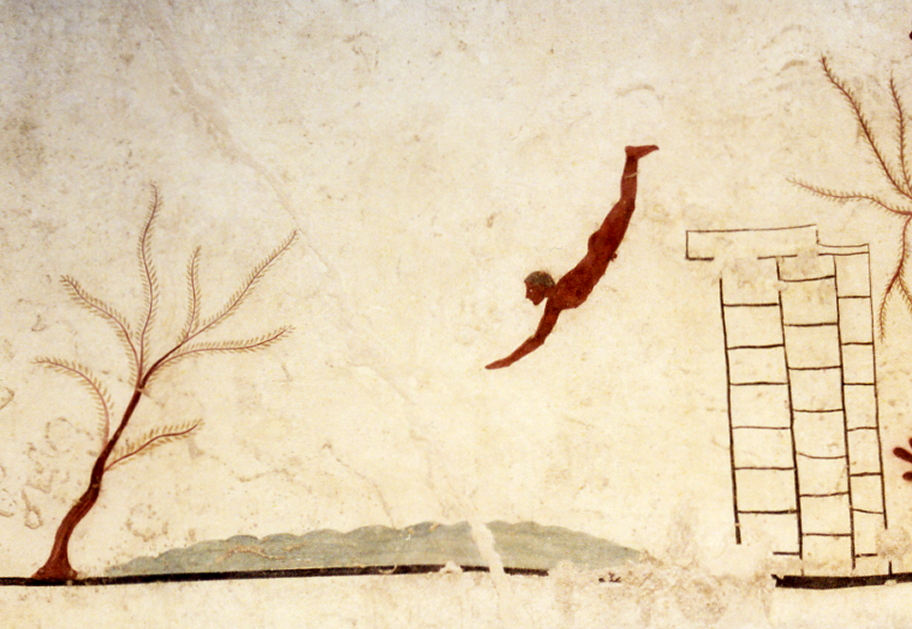I REMAIN HAUNTED by a remark a famous novelist made during her public talk at Sewanee University a few summers ago. She lamented, with much audible derision, that too many poets now write “lust poems,” as she called them, rather than “love poems.” The implication was that poems celebrating lust as opposed to love are easier to write, disingenuous, not as valuable, or more transitory in the feelings they capture. I wanted to call out from my auditorium seat that not everyone gets the chance to write love poems. I wanted to add that the state of lust endures, too, especially when it is captured and articulated well in a poem.
Lust, longing, desire, love—they’re all first cousins. Gay poets especially have mined these emotions. Cavafy’s pæans to anonymous boys that he saw at Alexandrian bazaars are love poems, even if he didn’t actually meet some of those subjects. Passages in Whitman’s Leaves of Grass address his longings for ferry boatmen and city laborers that he espies and imagines lying with. (“The beards of the young men glistened with wet, it ran from their long hair/ Little streams passed all over their bodies.”)
I have written love poems but I have written more lust poems. When I write a poem of lust, it begins as a love poem. Love, or a version thereof, is what I can feel, even if it is for someone with whom I have shared only a sudden intimacy, a one-night stand, a hookup, whatever term you wish to use. I have written love/lust poems to (mostly young) men I have met on the street for a short conversation without sex, and to men whom I have only spotted from afar, at a café table, wandering a museum gallery, or whom I’ve stood next to on a subway car, close enough to feel that vibrating force-field of energy that surrounds each one of us.
Years ago, on a road trip from New York to Chicago, I stopped in downtown Wheeling, West Virginia, early one Sunday morning for breakfast. From the opposite sidewalk on a deserted downtown street, I saw a tall, twenty-something man whose profile was so perfect that I couldn’t resist approaching him. I crossed mid-block and asked if I could take his photograph. Not surprisingly, he assessed me with a certain wariness. I reassured him that I thought he was striking and that I wanted to capture that quality, nothing more. After a pause, he let me.
So, there on the empty sidewalk, in a downtown mostly abandoned, especially on a warm Sunday morning, I positioned him so that the sun bathed one side of him. I had him stand on a corner framed by a streetscape that included a Chinese restaurant in a former vaudeville house, an empty 1920s bank palace, and the brick wall of an old office building painted with an advertisement for a typewriter brand. When I was done snapping his image, with a real camera, we shook hands and walked back to our cars, which we discovered were parallel parked front-to-back up the block. We shook hands again and exchanged cards. That was the extent of our interaction, though I sensed more could have happened. Many years later, I remember him still—with a kind of love, and with lust certainly. I wrote a poem about him shortly after our brief interaction on the street.
I always know that someone matters to me romantically when I write a poem about him. Lust is a form of love, a welling up that often, but not always, dissipates quite rapidly. Better to capture that sensation as quickly as possible. The moment I start dating someone, my friends gauge my response by asking me, “Have you written him a poem?”
A lust poem can be the most visceral of responses to a person we desire—someone that we may have experienced sexually, or not. A love poem is, perhaps, more carefully constructed than a lust poem. Using that metaphor, a lust poem is akin to a quickly drawn sketch of a building, while a love poem is a more precise architectural rendering, the lines decisive, the scale and proportions more correct—but possibly too contrived, lacking the spontaneity of passion. A lust poem is likely to be more honest than a love poem, since it is less intellectualized. When recounting sudden desire, or recent sex, I am less likely to analyze or render in metaphor, but instead baldy and bawdily recount, what happened.
Oftentimes we don’t have the opportunity to write love poems, especially gay men. For many reasons, love can be more elusive for us than it is for heterosexuals. For reasons originating both outside of our gay subculture and within, love can be trickier to secure. Those of us who write poems of lust are perhaps more aware of our feelings and desires. We recognize what is filling us up then and there, and we respond to that urge right away. We notice more about the person quickly because we recognize their transience: their scent, the drape of clothes on their body, features of their anatomy, perhaps the translucence of an earlobe, the bridge line of a nose, the whorl of their hair in back. We recall what they say to us as if they are uttering proverbs.
While on a press trip to tour the then brand new Tadao Ando wing of the Clark Art Institute in Williamstown, Mass., I was paired up with a fellow magazine editor, a young man working for a glossy fashion magazine. After a long, hot day admiring bluestone walls and recessed lighting fixtures, we wound up, discreetly, making out in the woods atop Stone Hill, on the campus of the museum. Later, he knocked on the door of my room at the hotel. I remember the clink of his silver bracelet, wristwatch, and two rings as he removed each, placing them on the dresser. I don’t remember his name, but I can still summon up those sounds, which I recounted in a poem I called “The Countdown,” referencing the thrill as one by one he removed each item of jewelry, bringing him closer to me.

On a different trip, I can remember walking along the main street of a tiny town in Maine when it was zero degrees with someone I had just met at the cozy inn at which we were both guests. Over dinner, he insisted that he was straight, and he seemed slightly wary of me when I told him I was not. We decided to go for a drive after the meal to a scenic seaside village, and after we parked we took a walk along the town’s main street, enduring the cold. We could have turned back at any point, but we kept going, citing one landmark after another as our final destination—a widow’s walk on an Italianate house, a stone bridge further on, the drugstore’s neon sign in the distance. When we returned to his car and got inside, our breaths evident in the chill, I reached over impulsively and put my hands over his ears that were so cold and smooth they felt like glass rather than skin. The cold had stung his ears such that he reached around and pressed my hands firmer against his ears. That was the detail I wrote about.
While reading the newspaper in Abingdon Square Park one Sunday, I nudged a bee off the back of a young man by using the corner of my folded newspaper. I had expected an acknowledgement of my act of kindness, but he didn’t thank me for saving him from a sting. What I remember is his hair being as black as the felt on the bee. Perhaps he sensed my urge to pollinate him, so to speak, so he fled from me in a visual echo of the bee. And yet another episode, but with a more gratifying ending: while I was eating pancakes in a Greenpoint, Brooklyn, diner with a handsome man, he reached under the table to hold my hand, and I felt the stickiness of the syrup on his fingers, which I would later taste.
When you are in love with someone, you acknowledge such details, but often from a distance of time. When you are in lust, you recount such details with a greater immediacy. You have to. The one with the sticky fingers is someone with whom I wound up establishing a relationship for a while, and I later wrote him love poems, which are of equal importance to the earlier ones that recounted bald, lustful desire.
I remain steadfastly proud of my ability to write lust poems. Do I wish I could write more love poems? Yes, because that would mean someone was more fully in my life, perhaps for the long haul. But because that is not the case right now, I will respond to the world, to the people I meet, to those with whom I may have intimate encounters, for whom I feel desire, longing, lust. I often invoke the late Howard Moss’s observation that in poetry “the half-seen, the barely glimpsed, if they make an impression, are more useable, usually, than the familiar.”
I almost felt as if that novelist’s remarks at Sewanee were a direct dismissal of poems by gay men (though I have no reason to believe she harbors any anti-gay sentiment). I do believe in my heart that gay men feel desire more strongly, more readily, more viscerally and immediately, than anyone else. It is a bias. If we can preserve some of those responses through a poem, then we have rewarded ourselves with something that can endure beyond the person’s vanishing from our life. The poem they leave behind casts a lasting shadow.
David Masello, based in New York City, writes about art and culture.







